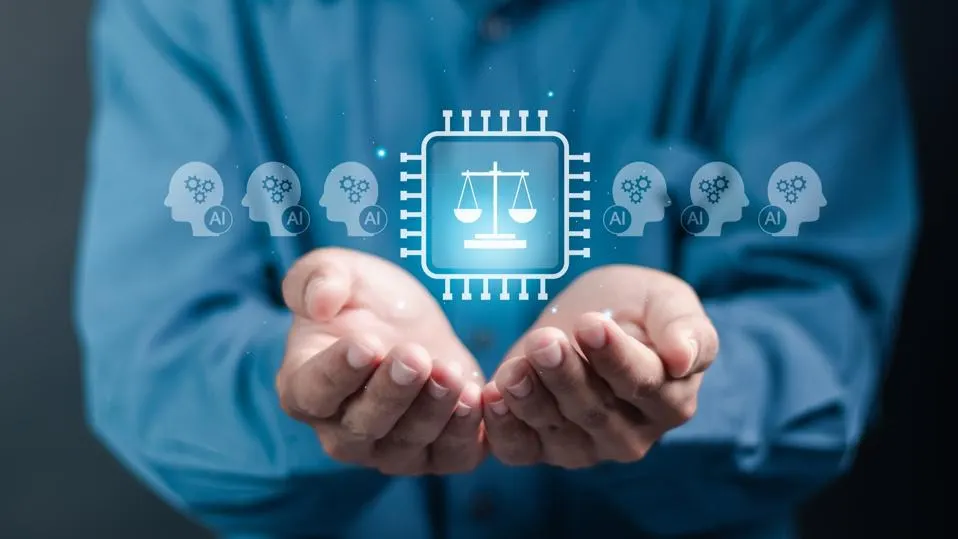Why AI Models Are Collapsing And What It Means For The Future Of Technology
27 August 2024
Artificial intelligence has revolutionized everything from customer service to content creation, giving us tools like ChatGPT and Google Gemini, which can generate human-like text or images with remarkable accuracy. But there’s a growing problem on the horizon that could undermine all of AI’s achievements—a phenomenon known as “model collapse.”
Model collapse, recently detailed in a Nature article by a team of researchers, is what happens when AI models are trained on data that includes content generated by earlier versions of themselves. Over time, this recursive process causes the models to drift further away from the original data distribution, losing the ability to accurately represent the world as it really is. Instead of improving, the AI starts to make mistakes that compound over generations, leading to outputs that are increasingly distorted and unreliable.
This isn’t just a technical issue for data scientists to worry about. If left unchecked, model collapse could have profound implications for businesses, technology, and our entire digital ecosystem.

What Exactly Is Model Collapse?
Let’s break it down. Most AI models, like GPT-4, are trained on vast amounts of data—much of it scraped from the internet. Initially, this data is generated by humans, reflecting the diversity and complexity of human language, behavior, and culture. The AI learns patterns from this data and uses it to generate new content, whether it’s writing an article, creating an image, or even generating code.
But what happens when the next generation of AI models is trained not just on human-generated data but also on data produced by earlier AI models? The result is a kind of echo chamber effect. The AI starts to "learn" from its own outputs, and because these outputs are never perfect, the model's understanding of the world starts to degrade. It's like making a copy of a copy of a copy—each version loses a bit of the original detail, and the end result is a blurry, less accurate representation of the world.
This degradation happens gradually, but it’s inevitable. The AI begins to lose the ability to generate content that reflects the true diversity of human experience. Instead, it starts producing content that is more uniform, less creative, and ultimately less useful.
Why Should We Care?
At first glance, model collapse might seem like a niche problem, something for AI researchers to worry about in their labs. But the implications are far-reaching. If AI models continue to train on AI-generated data, we could see a decline in the quality of everything from automated customer service to online content and even financial forecasting.
For businesses, this could mean that AI-driven tools become less reliable over time, leading to poor decision making, reduced customer satisfaction, and potentially costly errors. Imagine relying on an AI model to predict market trends, only to discover that it’s been trained on data that no longer accurately reflects real-world conditions. The consequences could be disastrous.
Moreover, model collapse could exacerbate issues of bias and inequality in AI. Low-probability events, which often involve marginalized groups or unique scenarios, are particularly vulnerable to being "forgotten" by AI models as they undergo collapse. This could lead to a future where AI is less capable of understanding and responding to the needs of diverse populations, further entrenching existing biases and inequalities.
The Challenge Of Human Data And The Rise Of AI-Generated Content
One of the primary solutions to preventing model collapse is ensuring that AI continues to be trained on high-quality, human-generated data. But this solution isn’t without its challenges. As AI becomes more prevalent, the content we encounter online is increasingly being generated by machines rather than humans. This creates a paradox: AI needs human data to function effectively, but the internet is becoming flooded with AI-generated content.
This situation makes it difficult to distinguish between human-generated and AI-generated content, complicating the task of curating pure human data for training future models. As more AI-generated content mimics human output convincingly, the risk of model collapse increases because the training data becomes contaminated with AI’s own projections, leading to a feedback loop of decreasing quality.
Moreover, using human data isn’t as simple as scraping content from the web. There are significant ethical and legal challenges involved. Who owns the data? Do individuals have rights over the content they create, and can they object to its use in training AI? These are pressing questions that need to be addressed as we navigate the future of AI development. The balance between leveraging human data and respecting individual rights is delicate, and failing to manage this balance could lead to significant legal and reputational risks for companies.
The First-Mover Advantage
Interestingly, the phenomenon of model collapse also highlights a critical concept in the world of AI: the first-mover advantage. The initial models that are trained on purely human-generated data are likely to be the most accurate and reliable. As subsequent models increasingly rely on AI-generated content for training, they will inevitably become less precise.
This creates a unique opportunity for businesses and organizations that are early adopters of AI technology. Those who invest in AI now, while the models are still trained primarily on human data, stand to benefit from the highest-quality outputs. They can build systems and make decisions based on AI that is still closely aligned with reality. However, as more and more AI-generated content floods the internet, future models will be at greater risk of collapse, and the advantages of using AI will diminish.
Preventing AI From Spiraling Into Irrelevance
So, what can be done to prevent model collapse and ensure that AI continues to be a powerful and reliable tool? The key lies in how we train our models.
First, it’s crucial to maintain access to high-quality, human-generated data. As tempting as it may be to rely on AI-generated content—after all, it’s cheaper and easier to obtain—we must resist the urge to cut corners. Ensuring that AI models continue to learn from diverse, authentic human experiences is essential to preserving their accuracy and relevance. However, this must be balanced with respect for the rights of individuals whose data is being used. Clear guidelines and ethical standards need to be established to navigate this complex terrain.
Second, the AI community needs greater transparency and collaboration. By sharing data sources, training methodologies, and the origins of content, AI developers can help prevent the inadvertent recycling of AI-generated data. This will require coordination and cooperation across industries, but it’s a necessary step if we want to maintain the integrity of our AI systems.
Finally, businesses and AI developers should consider integrating periodic "resets" into the training process. By regularly reintroducing models to fresh, human-generated data, we can help counteract the gradual drift that leads to model collapse. This approach won’t completely eliminate the risk, but it can slow down the process and keep AI models on track for longer.
The Road Ahead
AI has the potential to transform our world in ways we can barely imagine, but it’s not without its challenges. Model collapse is a stark reminder that, as powerful as these technologies are, they are still dependent on the quality of the data they’re trained on.
As we continue to integrate AI into every aspect of our lives, we must be vigilant about how we train and maintain these systems. By prioritizing high-quality data, fostering transparency, and being proactive in our approach, we can prevent AI from spiraling into irrelevance and ensure that it remains a valuable tool for the future.
Model collapse is a challenge, but it’s one that we can overcome with the right strategies and a commitment to keeping AI grounded in reality.
Related Articles
Will AI Solve The World’s Inequality Problem – Or Make It Worse?
We are standing on the cusp of a new technological revolution. AI is increasingly permeating every aspect of our lives, with intelligent machines transforming the way we live and work.[...]
How You Become Irreplaceable In The Age Of AI
In a world where artificial intelligence is rapidly advancing, many of us are left wondering: Will AI take our jobs?[...]
Why Apple Intelligence Sets A New Gold Standard For AI Privacy
In the rapidly evolving world of artificial intelligence, privacy concerns have become a hot-button issue.[...]
Can Your Device Run Apple Intelligence? What You Need To Know
Apple's announcement of Apple Intelligence has sent waves of excitement through the tech world.[...]
10 Amazing Things You Can Do With Apple Intelligence On Your IPhone
Apple Intelligence is poised to revolutionize the iPhone experience, offering a suite of AI-powered tools that promise to make your digital life easier, more productive, and more creative.[...]
Agentic AI: The Next Big Breakthrough That’s Transforming Business And Technology
The world of artificial intelligence is evolving at a breakneck pace, and just when you thought you'd wrapped your head around generative AI, along comes another game-changing concept: agentic AI.[...]
Sign up to Stay in Touch!
Bernard Marr is a world-renowned futurist, influencer and thought leader in the fields of business and technology, with a passion for using technology for the good of humanity.
He is a best-selling author of over 20 books, writes a regular column for Forbes and advises and coaches many of the world’s best-known organisations.
He has a combined following of 4 million people across his social media channels and newsletters and was ranked by LinkedIn as one of the top 5 business influencers in the world.
Bernard’s latest book is ‘Generative AI in Practice’.










Social Media